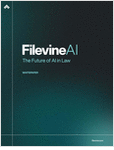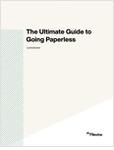Mary Jo White and her husband have amassed assets of at least $16 million, according to a financial disclosure form filed by the Debevoise & Plimpton partner who has been nominated to be the chairman of the Securities and Exchange Commission. The form, which she filed last week with the U.S. Office of Government Ethics, also shows that White received slightly more than $2.4 million as a Debevoise partner last year.
The White family’s assets are likely significantly higher than $16 million, since the disclosure form only requires valuation of assets within a range of figures. For example, seven classes of their assets are valued from $1-5 million; an additional six assets are valued at more than $1 million. (This latter group of assets, owned solely by her husband, can be reported simply as worth more than $1 million, with no upper limit given.) The couple report no significant debt.
White also filed a letter in which she outlined how she plans to deal with any conflicts of interest. In the letter, she revealed that her husband, Cravath, Swaine & Moore corporate partner John White, plans to convert from equity to nonequity status at Cravath upon her confirmation. This unusual move may be designed to minimize conflict problems for the couple and allow Cravath to continue to represent clients before the SEC without creating problems for Mary Jo White. Cravath has not previously had nonequity partners. White will receive a fixed salary and an annual performance bonus, according to the letter. You can read the financial disclosure form here and the conflicts letter here.
A message left for Mary Jo White at Debevoise was referred to a White House spokesperson, who did immediately respond. A call to John White at Cravath was also not immediately returned.
The disclosure form shows that Mary Jo White’s capital account at Debevoise is valued between $500,000 and $1 million. John’s White capital account at Cravath is valued at more than $1 million. Mary Jo White is entitled to receive $42,500 a month under Debevoise’s retirement plan, which works out to $510,000 annually. If she is confirmed, she will get a lump sum instead of monthly payments for the next four years. (John White’s share of Cravath’s profits last year did not have to be disclosed.)
Debevoise’s average profits-per-partner was $2.075 million, and Cravath’s PPP was $3.1 million, according to The American Lawyer’s reporting on the most recently available figures.
Most of the couple’s assets are invested in various stock market index and investment funds, including funds run by JPMorgan and Vanguard. In the ethics letter, Mary Jo White states that if she is confirmed, her husband will sell his interests in three hedge funds that are each valued at more than $1 million: Global Access Hedge Fund, Ltd.; HMLP Multi-Strategy Private Investors Ltd.; and Och-Ziff OZOFII Private Investors Offshore Ltd. White’s letter does not explain why these hedge fund investments are targeted for divestment. However, the SEC is in the process of formulating new rules for hedge funds.
Under the federal rules governing conflicts of interests, Mary Jo White cannot participate in any decision that would affect her family’s financial interest unless she receives in advance a written determination that the interest is "not so substantial as to be deemed likely to affect the integrity of [her] services." Furthermore, she can’t participate in a decision if it would raise a question in the mind of a reasonable person about her impartiality, although exceptions can be made after considering various factors.
White is also barred for one year from participating substantially in any matter involving a Debevoise client, with certain exceptions that don’t raise questions about her impartiality. Her disclosure form lists twenty-nine clients that paid Debevoise more than $5,000 last year for her services. They include Microsoft Corporation, UBS AG, Deloitte & Touche LLP, JP Morgan Chase & Co., the independent directors of News Corp., as well as Simpson Thacher & Bartlett. The form omits three clients because of "confidentiality obligations that do not permit disclosure without consent or waiver by the client."
White will almost certainly be questioned during her confirmation hearing about her ties to these businesses and others. On Monday, the non-profit Project on Government Oversight issued a report examining and criticizing the revolving door between the SEC and the business community. The group, however, has not taken an official position on White’s nomination.
A version of this story also appeared in sibling publication The Am Law Daily.





